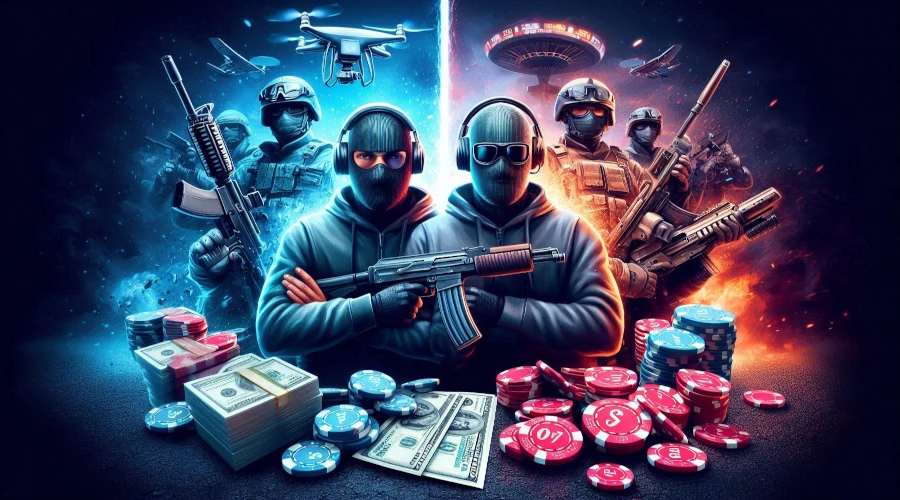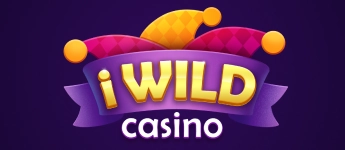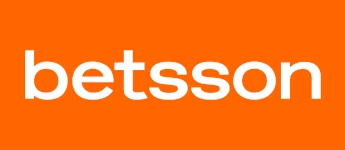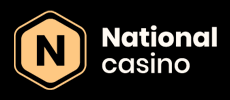 August 17 2025
August 17 2025
In recent years, CS gambling, betting with in-game items called skins, has become a striking and somewhat controversial alternative to traditional casino games. Using skins from Counter-Strike: Global Offensive (CSGO), players can bet on match outcomes, open virtual cases hoping for rare items, or play roulette-style games with these items as currency. While traditional casinos are heavily regulated, skin gambling exists in a more loosely governed space that can range from legit platforms to unregulated environments.
Which platform gives better odds and value to players: CS gambling or casino games? Understanding metrics like house edge, Return to Player (RTP), and expected value is key here. Do both ecosystems work, can odds be compared, and is there transparency?
CS gambling means wagering virtual items in CSGO or CS2. Popular formats are:
In CSGO skin betting, users bet skins from their inventory on match outcomes or casino-style games, with payouts in other skins. The value is market-driven, with rare skins being worth more.
Skins have variable real-world market prices, influenced by rarity, demand, and cosmetic appeal, not predictable odds. Unregulated case-opening sites often don’t disclose RTP, and their values range wildly. According to online forums, the best-case openings can have around 70% RTP, meaning a 30% loss expectation, while many cases are worse.
That means the house edge on exterior case openings can be 30-75% compared to single-digit percentages in casinos. Skin betting on match outcomes may have no clear edge or be skewed by opaque mechanics on third-party platforms.
Another concern is that many skin gambling sites have no licensing or independent audits. Some sites provide transparency, but the ecosystem is mostly unregulated, with under-reported odds, market manipulation, and underage access.
Because odds aren’t standard and skin values change, expected return is volatile. Anyone considering skin gambling must take personal responsibility for researching sites thoroughly before depositing.
Casinos use mathematical models to ensure long-term profitability while giving players the occasional win. Two key concepts are:
Different games have different odds:
In short, the lower the house edge, the better your long-term chances. Games that involve skill, like blackjack or video poker, can tip the odds in your favour.
These games use certified RNGs (Random Number Generators) and are audited independently for fairness. Casinos also offer player bonuses like deposit matches, free spins, and wagering credits. While these can sometimes deliver positive expected value, they come with rollover conditions that must be understood and calculated carefully.
Practical takeaway: Games with low house edge have the best odds. But even these favour the house in the long run unless bonuses with positive expected value are used effectively.
When comparing CS gambling to traditional casino games, a big difference shows up in transparency, predictability, and fairness. Casino games are built around well-understood mathematical principles that determine the house edge and RTP. Most casino games have an RTP of 95–99%, which means a house edge of 1–5%. So for every $100 wagered, you can expect to get back about $95–$99 in the long run. Some games have an element of skill where knowledgeable players can reduce the house edge to less than 1%.
Casinos are regulated and audited with RNGs and publicly available RTP data, so the odds are transparent and consistent. Several different resources let users review up-to-date RTP stats and fairness certifications for major casino games and platforms. Over time, player returns in casinos tend to be stable and predictable within these mathematical parameters.
CS gambling works differently. Case openings in CSGO have notoriously bad odds with estimated RTPs ranging from 25% to 70% which means the house edge can be 30% to 75% or more. These numbers are the average expected return across the wide variety of virtual skins. Unlike casino games, the value of skins fluctuates based on rarity, market demand, and cosmetic appeal, not predetermined payout odds.
Skin betting on esports matches is similar; the odds are opaque as these are facilitated through 3rd party platforms operating in legal grey areas without centralized regulation or auditing. Transparency is limited; players rarely have access to clear payout probabilities or oversight guarantees. It offers updated rankings, info on site licensing and support, and security features like provably fair systems, helping you vet platforms before depositing valuable skins.
Casino gambling relies on randomized fairness and known probabilities, whereas CS gambling relies heavily on psychological mechanisms such as the thrill of near misses in case openings, hype around rare skins, and the influence of streamers and esports culture. These are the same reinforcement patterns seen in slot machines and loot boxes, which use variable reward schedules to stimulate dopamine release and encourage continued betting despite bad odds.
In short:
If you want long-term positive expected value, traditional casino games crush CS gambling. For best odds, go for low-edge casino games like blackjack with basic strategy, which has an edge of under 1%. Baccarat with banker bets has an edge of 1.06% and video poker with optimal play can get around 0.5% edge.
When choosing games, look at RTP and bonus terms carefully. Go for games with 96-98% RTP and use bonuses wisely so that after meeting wagering requirements, the expected value is still positive.
If you’re considering CS gambling, remember that CSGO skin betting has high volatility and low transparency. Only use reputable sites with visible drop rates or published odds, like sites that have transparent case drop rates. Set strict limits and treat it as entertainment, not a profit-making venture.
To protect yourself, play only on licensed casino sites regulated by top jurisdictions like the UKGC or MGA. Practice responsible gambling by setting deposit limits and taking regular breaks from gaming.
CS gambling is fun in an esports context, but generally offers much worse odds than regulated casino games. The house edge in traditional casino play is mathematically proven, usually under 5%, often under 1% with skill. CS gambling and case openings have RTPs below 70%, sometimes much lower, with little transparency or oversight.
Casino games give you clarity, regulation, and statistical predictability, so they are better for players who want to play smart and long-term. Skin gambling gives you entertainment and community hype, but should be approached with caution, and never with the expectation of good odds.
Informed decisions and responsible habits are your best tools. Always check odds, RTP, regulations, and think twice before risking real value items in high volatility formats.


Curacao-License


Malta-License (EU)




Curacao-License


Curacao-License



Curacao-License
 There is a No Deposit Bonus available: 30 Free Spins
There is a No Deposit Bonus available: 30 Free Spins


Curacao-License


Curacao-License
 There is a No Deposit Bonus available: 30 Free Spins
There is a No Deposit Bonus available: 30 Free Spins


Curacao-License
 There is a No Deposit Bonus available:
25 Free Spins
There is a No Deposit Bonus available:
25 Free Spins


Curacao-License


Curacao-License
 There is a No Deposit Bonus available: 25 Free Spins
There is a No Deposit Bonus available: 25 Free Spins


Curacao-License


Malta-License (EU)


Curacao-License


Curacao-License
 There is a No Deposit Bonus available: 20 Free Spins
There is a No Deposit Bonus available: 20 Free Spins